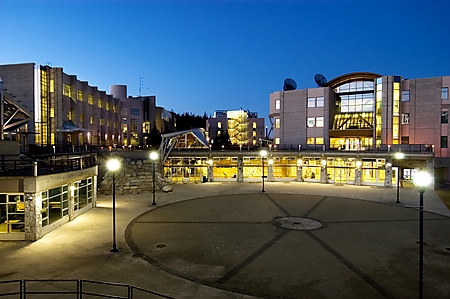UNBC Enrolment Hits Record High
By 250 News

UNBC has another reason for a party.
It has just set an enrolment record for a fall semester, 3750 students are currently registered in university-credit courses at UNBC, that's up nearly 4% over this time last year.
There are several factors that have contributed to the increase:
- new program in rural nursing with nearly 50 students.
- new “for-credit” offerings in Continuing Studies and English-language studies.
- a 7.4% increase in registrations at regional campuses, including a new Master of Education degree program in Grande Prairie with about 25 students.
- growth in the number of students pursuing master’s and PhD programming. In fact, the number of graduate students at UNBC has surpassed 500 for the first time, a 16% increase over the fall semester in 2006. This year, there has been particular growth in the University’s environmental programs and the MBA.
UNBC President Don Cozzetto is thrilled “This is a tremendous achievement for everyone at UNBC as we respond to demographic challenges, a busy regional economy, and increased competition within the post-secondary marketplace,” says UNBC President, Don Cozzetto. “What we’re seeing is a change in our student population and it’s up to us to realize these changes and respond. This means providing more opportunities for graduate students and more opportunities for ‘non-traditional’ students to take focused programs on a flexible schedule. We’re an education destination for students from around the province.”
On the downside, there are fewer students enrolled in the bachelor degree programs. There are 3105 students in undergraduate degrees, a 1.6% drop compared to last year. More than 1900 students were registered in summer programming this year, up nearly 50% over last year.
The official fall enrolment numbers will be known November 1.
Previous Story - Next Story
Return to Home











;-)